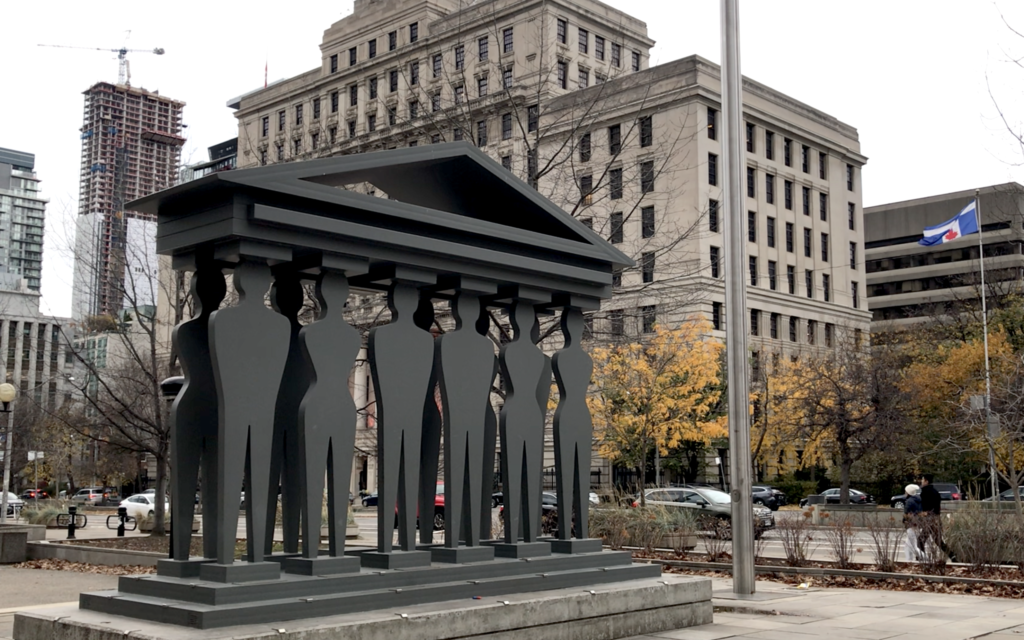“For years, Barrick has batted away reports of serious human rights abuses at its mine in Tanzania and failed to address the brutality of ‘mine police’ assigned to guard its operations. Tanzanian communities have been left with little choice but to turn to Canadian courts for justice and an end to the mine’s culture of violence.
This case is an important test of whether Canada is prepared to hold its own companies to account for wrongdoing, or whether its legal commitments to human rights are set aside when it comes to people harmed by Canadian companies operating abroad.”
– Anneke Van Woudenberg, Executive Director, corporate watchdog RAID
Twenty-one Tanzanian nationals filed a legal case today against Canadian mining giant Barrick Gold for grave human rights violations at the company’s North Mara gold mine in Tanzania. It is the first time Barrick is facing legal action in Canada for human rights violations at one of its operations abroad.
The action by the plaintiffs, who are members of the Indigenous Kurya community amongst whose villages in northern Tanzania the mine has been built, concerns brutal killings, shootings and torture that they allege were committed by police engaged to guard the mine (who local residents refer to as “mine police”). They are represented by the law firms Camp Fiorante Matthews Mogerman LLP and Waddell Phillips. Filed in the Ontario Superior Court of Justice, the case includes claims for five deaths, five incidents of torture, and a further five injuries from shootings by the “mine police”.
The North Mara mine is notorious for violence against the Kurya people who lived on, farmed and mined the land on which Barrick’s mine has been built. Earlier this month, RAID reported that the North Mara mine ranks as one of the deadliest industrial mines in Africa for security-related violence, with at least 77 people killed and 304 injured, many on multiple occasions, by police responsible for mine security. Most of these incidents occurred after Barrick acquired the mine in 2006.
As RAID has reported, central to the violence has been the mine’s use of Tanzanian police officers for security. The North Mara mine pays, equips, feeds and houses approximately 150 police officers on an ongoing basis, who operate under a signed agreement between the company and the police. They are armed with rifles, submachine guns, batons and wooden clubs, as well as teargas and sound bombs that they fire from launchers.
RAID’s research, including interviews with a whistleblower from the mine’s internal security team, has found that the police form an important part of the North Mara mine’s security structure. They are present in the mine’s central control room, share the same radio frequency as the mine’s internal security team, and are continuously deployed around the mine site. According to a senior police commissioner, the police engaged by the mine provide their services exclusively to the mine, and not to the community at large.
In correspondence with RAID, Barrick says that the mine does not employ, “supervise, direct or control” police assigned to it, and is not responsible for their conduct.
Whether Barrick may be held responsible under the law for the harm caused in these cases is a question Canadian courts are now being asked to rule on.
Notes for editors:
RAID has conducted numerous missions to North Mara, beginning in 2014. Since November 2019, RAID has conducted nine research missions and carried out over 178 interviews in person and by phone, including with those injured, witnesses, family members, village leaders, local authorities, elected officials, former mine employees, security personnel, and members of the Tanzania Police Force.
Canada is home to nearly half of the world’s publicly listed mining and mineral companies, which have long been associated with serious human rights violations and environmental damage. Yet Canadian companies have rarely been held to account for the harms arising from their transnational operations.
Several court cases have begun to challenge this failure. These include Araya v Nevsun Resources, a case against a Canadian mining company for forced labour and other human rights violations at the company’s operations in Eritrea. The case established that Canadian companies may be directly liable for breaches of customary international law, such as the prohibition against torture, committed at their overseas operations. The new legal case against Barrick could be another important step towards accountability for Canadian companies implicated in human rights violations abroad and provide greater access to remedy for those harmed.
This is the third legal case brought in the UK or Canada against Barrick or its subsidiaries for human rights violations by security forces at the North Mara mine. The previous two were filed in the UK, which was the place of incorporation of Barrick’s subsidiary, Acacia Mining, which operated the mine between 2010 and 2019. In September 2019, Barrick brought Acacia back in-house. The first legal case was settled in 2015, and the second, which concerns events between 2014 and September 2019, is ongoing.
The newly filed action is the first such case brought in Canada and concerns human rights violations after Barrick assumed operational control of the mine in 2019.
For more information, please see:
- RAID’s key questions on the Canadian legal action
- RAID’s November 2022 briefing on the North Mara mine as one of the deadliest in Africa
- RAID’s March 2022 briefing on police violence at the North Mara mine

